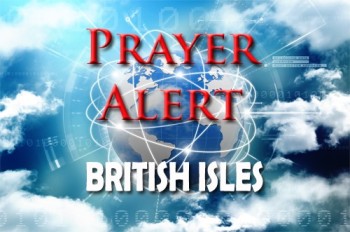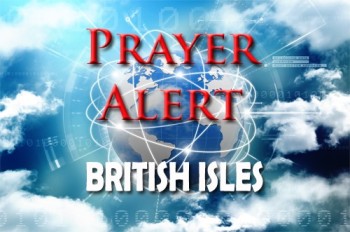Displaying items by tag: Environment
China: top carbon emitter becomes renewable energy superpower
While Donald Trump’s administration is pedalling back on American commitment to green energy, China is rapidly expanding renewable energy across its vast landscapes, building huge solar and wind installations to reduce reliance on fossil fuels. In some desert regions, solar panels are not only providing shade but also slowing land degradation, giving farmers renewed hope. The country now produces more solar panels than the rest of the world combined and aims to peak emissions by 2030 and reach carbon neutrality by 2060. Yet the transition brings tensions. Oversupply has hurt manufacturers, while some rural communities lose farmland or feel excluded from decisions. Concerns also remain about labour practices and environmental impacts linked to mining and construction. At the same time, coal still supplies much of the nation’s electricity, meaning the shift must balance economic growth with environmental responsibility. The changes show both promise and hardship as society adapts to a new energy future.
Africa: climate change causing drought in the east, floods in the south
For reporter Haru Mutasa, covering climate change stories was not part of the plan, yet one assignment led relentlessly to another. A routine trip to Kenya’s Mandera County revealed a devastating drought along the Kenya–Somalia border. Dry riverbeds, starving camels and burned livestock graves told a grim story. Communities depended on infrequent water deliveries, sharing muddy water with animals. Pastoralists like Mohamed Hussein had lost most of their livestock, struggling to keep families alive. After leaving Kenya, Haru thought the story was over. Instead, heavy rains and floods swept across southern Africa. Soon she was deployed again, this time to Mozambique. In Maputo, neighbourhoods lay submerged in filthy floodwaters. Further south, highways had disappeared underwater and farmland had vanished beneath rising rivers. With dams upstream full, more flooding threatens. While the world looks elsewhere, these communities remain, facing a climate crisis that refuses to pause.
Kenya: even when he had no home, he was rescuing wild birds
Once homeless and living on the streets, Rodgers Oloo Magutha now shares his modest home with rescued birds in Kenya. Growing up near Lake Nakuru, surrounded by rich birdlife, he found his childhood curiosity growing into a lifelong calling. Over the years, he has rescued and cared for more than twenty bird species, including kites, owls, storks, crows and pigeons. Many arrive injured, starving or trapped, and he nurses them back to health before releasing them into the wild. His work fills a critical gap in a country with few wildlife rehabilitation centres. The challenges are constant: limited space, lack of veterinary training, scarce food and public misunderstanding, with some even accusing him of witchcraft because of his close bond with the birds. Yet Rodgers continues, motivated by compassion and wonder. His dream is to establish a legal, well-equipped bird rescue shelter, so that more vulnerable creatures can be healed and returned to freedom.
South Africa / Mozambique / Zimbabwe: 100+ dead after severe flooding
A national disaster has been declared in South Africa after weeks of torrential rain and severe flooding killed at least thirty people in the country’s north and caused widespread destruction. In Limpopo and Mpumalanga, the worst-hit provinces, homes, roads, and bridges have been washed away, leaving many families displaced. Heavy rains have also affected other provinces, while neighbouring Mozambique and Zimbabwe also suffered deadly floods, bringing the regional death toll to more than a hundred In Limpopo alone, damage is estimated at around £180 million. Rescue teams are still searching for missing people, including a five-year-old child believed to have been swept away when his home flooded. Hundreds of tourists and staff were evacuated from Kruger National Park during the crisis, highlighting the scale of disruption. As recovery efforts continue, communities face deep loss and an uncertain road ahead.
Kent / Sussex: major incident declared, water supplier under investigation for shortages
South East Water is under investigation by regulator Ofwat after repeated outages since November left tens of thousands of households and businesses across Kent and Sussex without drinking water. Some properties have endured up to six days without supply, with around 8,500 addresses still affected. The watchdog is examining whether the company breached licence conditions by failing to meet customer service standards or provide adequate support. This follows earlier prolonged outages in Tunbridge Wells, where 24,000 properties lacked drinkable water for nearly two weeks. Ofwat is also reviewing the firm’s supply resilience, while the government has asked for a wider licence review. A major incident has been declared, schools have closed, and ministers are holding daily emergency meetings. South East Water has blamed storm-related power cuts and burst pipes, but frustration remains high as recovery plans continue amid slow refilling of storage tanks.
Global: last eleven years have been the warmest ever recorded
New data from European and American scientists shows the planet endured its third-warmest year on record in 2025, with little expectation of cooling ahead. According to them, global temperatures averaged 1.47°C above pre-industrial levels, meaning the past eleven years are now the warmest ever recorded. For the first time, the three-year average from 2023 to 2025 exceeded the 1.5°C threshold set by the Paris Agreement, raising serious doubts about the world’s ability to meet its climate goals (especially since the USA, one of the main emitters of greenhouse gases, withdrew from the agreement a year ago). The UK Met Office confirmed similar findings, pointing to rising greenhouse gas concentrations as the main driver. While some countries have announced emissions targets, scientists warn these remain insufficient. In October, UN secretary-general Antonio Guterres stressed the need for early warning systems to protect communities across the globe.
France: Paris leads the way in tackling ‘carspreading’
Across the UK and Europe, cars are steadily growing longer, wider, and heavier - a trend critics have nicknamed ‘carspreading’. SUVs in particular have surged in popularity, with their market share rising from 13% in 2011 to nearly 60% by 2025. Buyers praise them for visibility, practicality, comfort, and a sense of safety, and carmakers favour them for higher profit margins. But cities like Paris and Cardiff are pushing back, arguing that larger vehicles worsen pollution, increase road wear, and heighten risks in collisions. In Paris, after parking fees for heavy vehicles were tripled, the authorities have reported a two-thirds reduction in their numbers. Cardiff plans similar measures, gradually lowering weight thresholds for higher permit costs. Supporters say cities are too constrained to accommodate ever-bigger cars, while critics argue families rely on them for space, mobility, and accessibility. With many European roads narrower than modern vehicles, the debate highlights a growing tension between personal convenience, environmental responsibility, and urban safety.
Man arrested in connection with huge pile of waste
Authorities in Oxfordshire are working to tackle one of the most serious fly-tipping incidents the region has seen, after a massive illegal waste pile - around 150 metres long and up to six metres high - was discovered on farmland near Kidlington. The Environment Agency has declared the situation a critical incident due to public safety and environmental risks, particularly with the site’s proximity to the River Cherwell. Following months of overnight dumping by organised criminals, a court order secured in late October halted further tipping, and the location remains sealed off as a live crime scene. A 39-year-old man from the Guildford area has now been arrested as part of a major investigation. Officials are monitoring potential contamination, though no signs of hazardous waste breakdown have been detected so far. Keir Starmer said that ‘all available powers’ would be used to make those responsible pay for the clean-up: a similarly huge amount of illegally dumped waste, in Kent, will probably take up to a year to remove.
Brazil: tussle between conservationists and musicians over endangered trees
Tim Baker has spent more than four decades crafting world-class bows for violins and cellos - the very tools which, as he puts it, give musicians their ‘voice’. But now his longstanding craft is caught in the middle of an urgent conservation battle. Brazilwood, also known as pernambuco, is the prized, endangered timber used in most professional bows, beloved for its strength and resonance. With the tree’s population reduced by 84% due to centuries of overharvesting and ongoing illegal logging, Brazil is pushing for the highest level of international trade protection. Advocates say drastic action is needed to save the species, but musicians fear that tighter restrictions could ground performers, expose their bows to confiscation, and make global touring nearly impossible without complex permits. Conservationists and performers alike agree that the status quo is unsustainable, but they need to agree on a plan that protects both music and nature.
South Africa: Water Warriors battle flood risks and pollution
In Alexandra, South Africa’s oldest township, on the outskirts of Johannesburg, local volunteers known as the Alexandra Water Warriors are working tirelessly to protect their community from worsening flood risks and pollution. Using garbage-trapping nets across the Jukskei River, they are trying to prevent debris from clogging the waterway - a growing danger linked to illegal dumping and climate-intensified flash floods. The stakes are high: when the river overflows, bridges disappear underwater and children are unable to reach school. Despite limited resources, the Water Warriors plant native trees, clean riverbanks, and recycle collected waste into items that can bring in income. Their efforts have significantly reduced visible pollution, demonstrating the power of grassroots action in a place overshadowed by extreme inequality: Alexandra lies within sight of affluent Sandton, yet lacks basic infrastructure support. As world leaders gather in Johannesburg to discuss climate resilience, communities like Alexandra urgently need the global partnership and investment they cannot secure alone.









